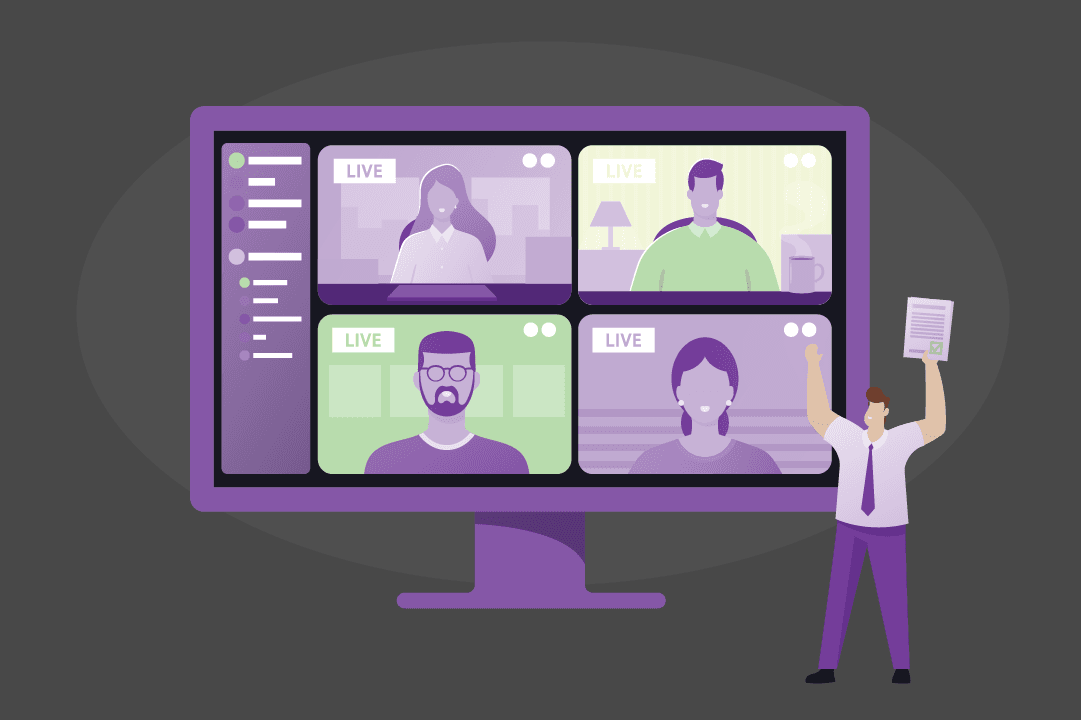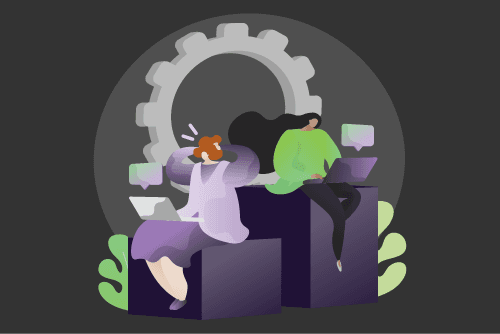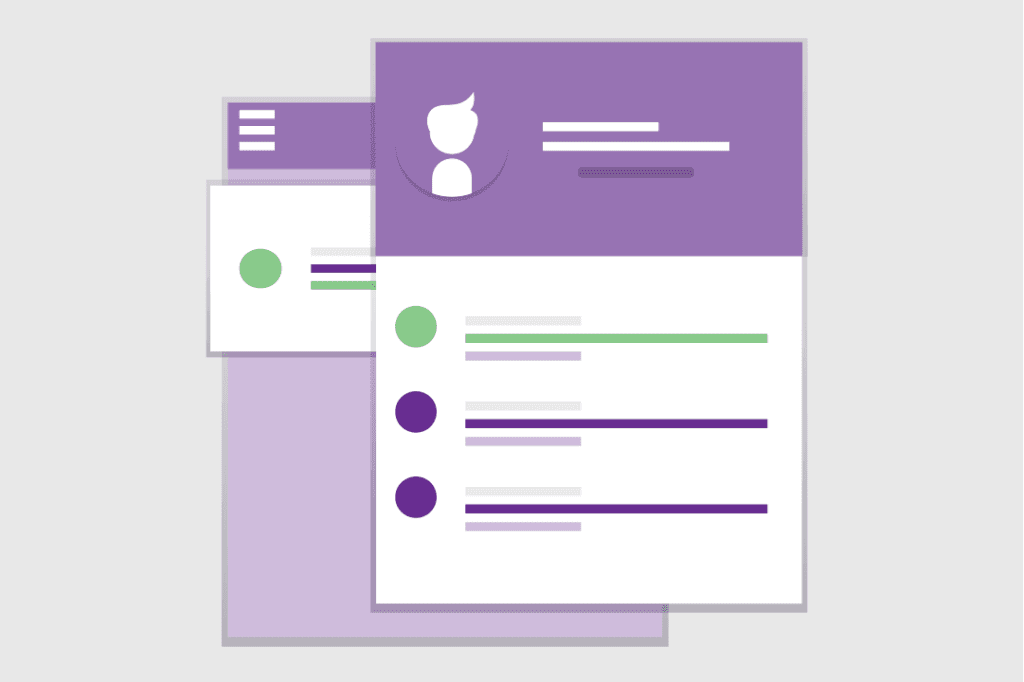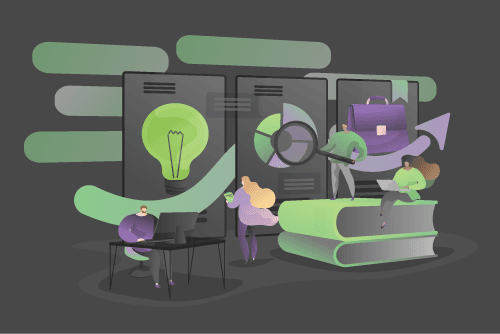In the Hybrid Workforce, this One Skillset Predicts High Performance. Does Your Team Have It?

Communication, work ethic, adaptability and time management. These are the top four critical skills for succeeding in a remote work environment according to a recent survey by recruitment and HR specialist, Drake International.
They’re not new skills, and they’re not buzzwords. In fact, more often than not, these skills are expected rather than appreciated. But the fact that such basic skills top the list begs a deeper question:
Why is there such an emphasis on the basics for employees who perform non-basic work?
Internal research by Drake International has proven that if employees lack these skills, the resulting skills gaps can have a detrimental impact on the productivity of employees and the quality of work being produced.
CEO of Drake International, Christopher Ouizeman, explains this was the darker side of their research around remote work.
“We found that there were employees who, once faced with having to work from home, their lack of productivity actually shone through,” Ouizeman says. “Their deficiencies just rose to the surface really, really quickly. And it was easily observed.”
The thesis Ouizeman drew from this was that remote work will “sort the mediocre from the high performance”. And the high-performance employees are those bringing critical soft skills to the table.
Since only 20% of employees surveyed are keen to return to the workplace full-time, hybrid working arrangements are filtering into the new normal.
For employers noticing a similar divide across their workforce, it’s imperative that the skills gaps shining through — especially in the following areas — are mitigated effectively.
The top 10 soft skills for remote work
National Marketing Manager for Drake International, Sarah Ross, says the purpose of the survey was to define the critical skills specifically required for the remote and hybrid workforce. “If an employee is at home and they’ve now got to work more autonomously, what does that mean? What are those skills that an employee needs for them to be productive?” she explains.
Over 100 respondents from a range of industries and roles participated in DI’s survey, which uncovered a list of 10 critical remote work skills.

The survey found the most imperative skills for the remote workforce are:
Skills that didn’t have as much of an impact include:
At a glance, these skills seem basic.
But that’s because we’ve come to expect them in the workplace. These skills need to be developed like any other. Employees and employers must start taking responsibility for improving and honing them in the workplace.
Why does the remote workplace require excellence in the basics?
Writer and vocal remote-work cynic, Sean Blanda, bemoans the ‘flattening’ of work in a remote environment. In his article, Our Remote Work Future is Going to Suck, he says: “Whatever soft skills you bring to the table will be minimized when working remotely. This will lead to companies and processes relying less on things like creativity and collaboration and more on simple inputs and outputs.”
It’s a thesis that loses footing in the wake of this survey. Australian employers are vocalising the need for employees to bring a wealth of soft skills to the table, and simultaneously recognising that these skills aren’t to be taken for granted.
After a year of trial and error trying to get remote work right, employers are acknowledging the role of soft skills in overcoming the challenges created by the remote work environment. Things like:
It’s easy to see how soft skills are needed to navigate and overcome these challenges.
It’s a stripped-back skillset for a stripped-back environment. In a physical workplace, employees can be managed effectively in real time. There’s a level of observation from team leaders and managers that can both serve to motivate employees and give those managers a sense of certainty that work is getting done.
In the remote workplace, however, observation is removed, and this can have a negative impact on trust according to PwC’s People, Partner and Organisation Leader, Peter Wheeler.
“15% of CFOs are worried about productivity and the ability to support remote working.”
Peter Wheeler
People, Partner and Organisation Leader, PwC
This sentiment has rippled across Australian workplaces, Ross Points out.
“From a management perspective, you want to make sure that the person that you have working in an autonomous environment has that strong work ethic,” she says. “It makes sense to want an employee you can rely upon and who’s dependable.”
It’s these soft skills that create the foundation for a trustworthy, productive and dependable employee.
Addressing work ethic: isn’t it a given?
Work ethic is an umbrella term for a range of smaller traits like responsibility, discipline, reliability and dedication. However, it’s often misunderstood to be a quantitative skill: the qualitative element of it is often lost.
“Work ethic is a nebulous term,” Ouizeman explains. “A lot of people just think work ethic is simply the hours that people put in: if an employee starts really early and they finish really late, they must have a great work ethic.
“It’s actually about making sure that the time that you have is put to best use,” he says.
“Employees can come in really early to be seen to be doing the right thing, and they leave really late during the day. But they’re doing next to nothing at all. It’s all window dressing.”
Christopher Ouizeman
CEO, Drake International
PwC’s Peter Wheeler cements this idea, explaining that in a remote work environment, managers need to start “rewarding performance based on output of work, not visibility of workers or time put in”.
This is hotly contested by Blanda, who addresses the idea of output-based reward in his piece. “With the removed context of a real-life office, your team’s output is difficult to individualise for your manager — especially if work is done in private DMs or one-on-one Zoom calls. The manager sees the end product with no visibility as to who did what, who pulled their weight, who made tough choices, and who made things more difficult,” he writes.
This is undoubtedly a risk prevalent in a remote environment, however it’s an argument that actually necessitates the development of soft skills suited for a remote environment.
If employees can perform at a high level and equally utilise communication, collaboration and work ethic skills as they work, each person would be capable of ‘pulling their weight’. The success of the team’s output then is a shared effort.
Employees who are scared by the idea that output is the measurement of work ethic are likely those ‘window dressers’ noted by Ouizeman. These employees are also the reason the trust gap between employees and managers is so prevalent in a remote work environment.
How to bridge soft skills gaps and create a successful hybrid workforce
There are a number of tools available to employers to help determine where soft skills gaps lie in their workforce. Psychometric testing is one tool that can offer boundless insight into the mindset and behaviours of your employees.
It’s a scientifically developed test designed to assess personality traits and capabilities in an objective way. It’s commonly used in recruitment processes to determine the candidate-fit for a role.
These tests can also be used to assess skills gaps of existing employees.
Ross says, “There are a number of tools in the marketplace. Drake International has such a tool called Drake P3, which we utilise when we undertake any kind of recruitment assignment for our clients.
“And part of our traditional recruitment process is digging deeper and exploring technical skills. But Drake P3 helps us uncover the critical soft skills and behavioural traits of individuals.
“And from those assessment results, we can gain valuable insights to understand people’s decision-making styles, communication skills, emotional intelligence levels, self-discipline and other really important skill sets and behaviours employers need to be aware of when hiring,” Ross explains.
“You can also apply these kinds of psychometric tests to existing employees and undertake team assessments to identify any soft skill gaps you may currently have within a team.”
Sarah Ross
National Marketing Manager, Drake International
The rewards of having an effectively skilled remote workforce far outweigh the challenges posed by the environment.
Productivity and output will skyrocket for your organisation, as Drake International discovered.
Ouizeman explains, “We found through our own internal studies that, while people used to work a certain amount of hours, now that they work from home and have no commute, they actually use that space to be more productive. Not only that but, when you have a look at the multiplier effect that has, employees may be at least 30% to 40% more productive than they were prior.”
Moving into the future with a hybrid workforce will also create a more flexible and accommodating work environment — something that many employees and employers alike might never have thought possible.
“It’s not just about doing the nine-to-five. It’s broader than that,” Ross says. “It’s about working when and where you want and having greater flexibility. It’s a win-win for employers and employees.”






